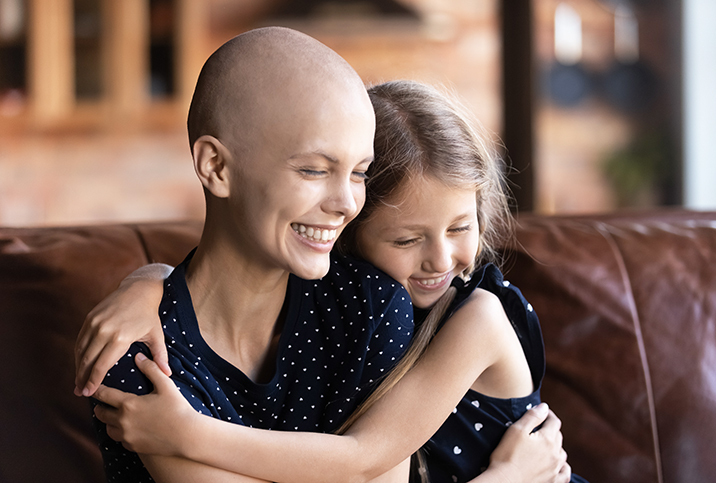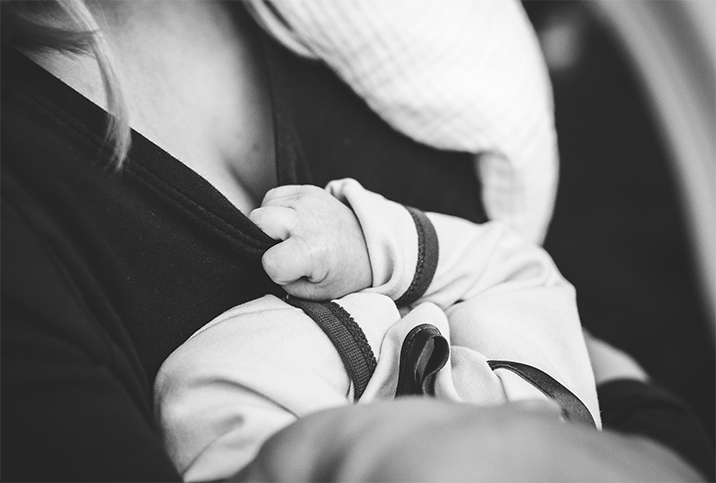Breast Cancer Patients Can Pause Treatment to Have a Baby, Study Finds

A month before her 28th birthday, Shehzin Tietjen was diagnosed with early-stage breast cancer.
Tietjen, an international trade manager in Atlanta, was worried about what her diagnosis meant for her ability to become a mother.
Since her cancer was in its early stages, Tietjen was able to skip chemotherapy, which can cause infertility. After undergoing a lumpectomy and sentinel lymph node biopsy, Tietjen was prescribed endocrine therapy, a hormone-blocking treatment that could harm a developing fetus if taken in conjunction with pregnancy.
Tietjen feared that endocrine therapy—which can last between five and 10 years—would take the bulk of her childbearing stage of life.
"I felt emotionally and physically ready to start a family," Tietjen said. "But I wasn’t going to do something outside the standard of care and risk my cancer coming back."
A few years into her treatment, though, Tietjen heard promising preliminary data from a clinical trial called POSITIVE (Pregnancy Outcome and Safety of Interrupting Therapy for Women with Endocrine Responsive Breast Cancer). Early evidence suggested patients who interrupted endocrine therapy were able to conceive and deliver healthy babies while not increasing their risk of recurrence.
Encouraged by the study's early findings, Tietjen spoke to her doctor about pausing her own hormone-blocking treatment before her five-year mark to attempt to get pregnant.
"We looked at the data together and made an informed, shared decision [to take a break]," Tietjen said.
Six months after pausing treatment, Tietjen and her husband conceived.
Fast-forward to the present day and the couple has a 2-year-old daughter. Tietjen, who has resumed endocrine treatment, now works as associate director for corporate and foundation relations at Living Beyond Breast Cancer (LBBC), a national nonprofit organization that offers resources and support.
About the POSITIVE trial
The most recent results of the clinical trial were presented in December 2022 at the San Antonio Breast Cancer Symposium. The latest information reaffirms preliminary data, suggesting parents can safely pause hormone treatment for up to two years to conceive, deliver and breastfeed without increasing the risk of cancer recurrence.
The study, which began in December 2014, involved 518 participants between the ages of 27 and 42. In order to qualify, participants had to have hormone receptor-positive breast cancer treated with adjuvant endocrine therapy for 18 to 30 months, in addition to having the desire to conceive.
Participants paused hormone blockers for up to two years to get pregnant, deliver and breastfeed. After a pregnancy attempt or success, participants were encouraged to resume endocrine therapy.
After three years, about 9 percent of participants saw cancer recurrence, a similar rate experienced by people in a separate study who stayed on hormone treatment. More than 300 babies were born to study participants.
"What's wonderful about the POSITIVE results is that it shows us that sequencing off of hormone-blocking medication for a period of time to achieve pregnancy and childbirth, and then going right back to treatment and completing it afterward, is not associated with any increased risk," said Virginia F. Borges M.D., M.M.Sc., a medical oncologist and member of Living Beyond Breast Cancer's medical advisory board, who was involved in the study.
"Natural fertility begins to decline somewhere around 34, 35 years of age, on average," she explained. "So if you take a woman who's diagnosed [with breast cancer] at 30, 32, who has not yet had the opportunity to have children but wants them, if you're asking her to be on treatment for five to 10 years, that could easily put her beyond the point of her natural fertility.
"[The trial] is really fantastic because it makes sure we are affording the opportunity [to conceive] to women who might not have that opportunity later after their hormone therapy was completed," Borges said.


















